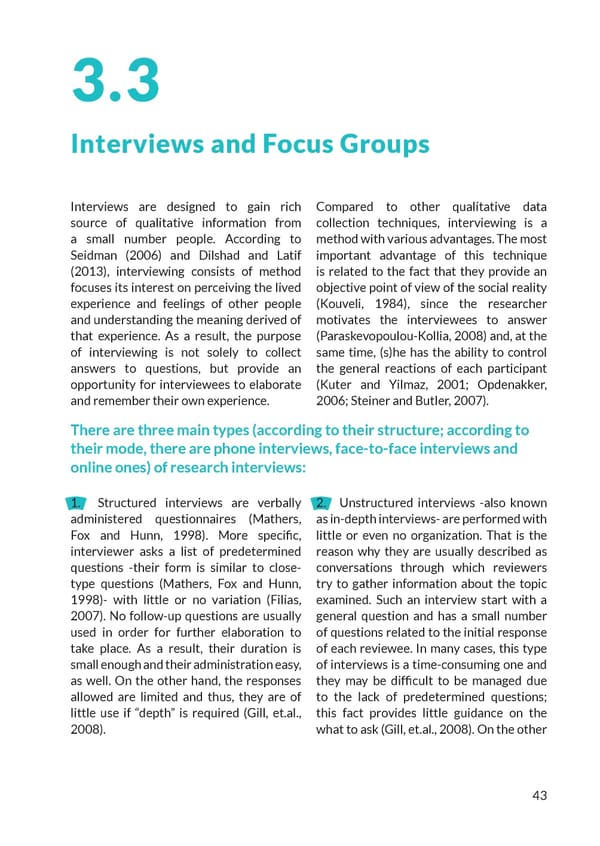3.3 Interviews and Focus Groups Interviews are designed to gain rich Compared to other qualitative data source of qualitative information from collection techniques, interviewing is a a small number people. According to method with various advantages. The most Seidman (2006) and Dilshad and Latif important advantage of this technique (2013), interviewing consists of method is related to the fact that they provide an focuses its interest on perceiving the lived objective point of view of the social reality experience and feelings of other people (Kouveli, 1984), since the researcher and understanding the meaning derived of motivates the interviewees to answer that experience. As a result, the purpose (Paraskevopoulou-Kollia, 2008) and, at the of interviewing is not solely to collect same time, (s)he has the ability to control answers to questions, but provide an the general reactions of each participant opportunity for interviewees to elaborate (Kuter and Yilmaz, 2001; Opdenakker, and remember their own experience. 2006; Steiner and Butler, 2007). There are three main types (according to their structure; according to their mode, there are phone interviews, face-to-face interviews and online ones) of research interviews: 1. Structured interviews are verbally 2. Unstructured interviews -also known administered questionnaires (Mathers, as in-depth interviews- are performed with Fox and Hunn, 1998). More specific, little or even no organization. That is the interviewer asks a list of predetermined reason why they are usually described as questions -their form is similar to close- conversations through which reviewers type questions (Mathers, Fox and Hunn, try to gather information about the topic 1998)- with little or no variation (Filias, examined. Such an interview start with a 2007). No follow-up questions are usually general question and has a small number used in order for further elaboration to of questions related to the initial response take place. As a result, their duration is of each reviewee. In many cases, this type small enough and their administration easy, of interviews is a time-consuming one and as well. On the other hand, the responses they may be difficult to be managed due allowed are limited and thus, they are of to the lack of predetermined questions; little use if “depth” is required (Gill, et.al., this fact provides little guidance on the 2008). what to ask (Gill, et.al., 2008). On the other 43
 MemoryHandbook new Page 42 Page 44
MemoryHandbook new Page 42 Page 44